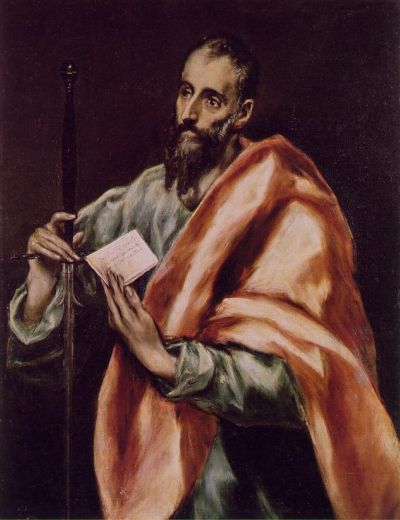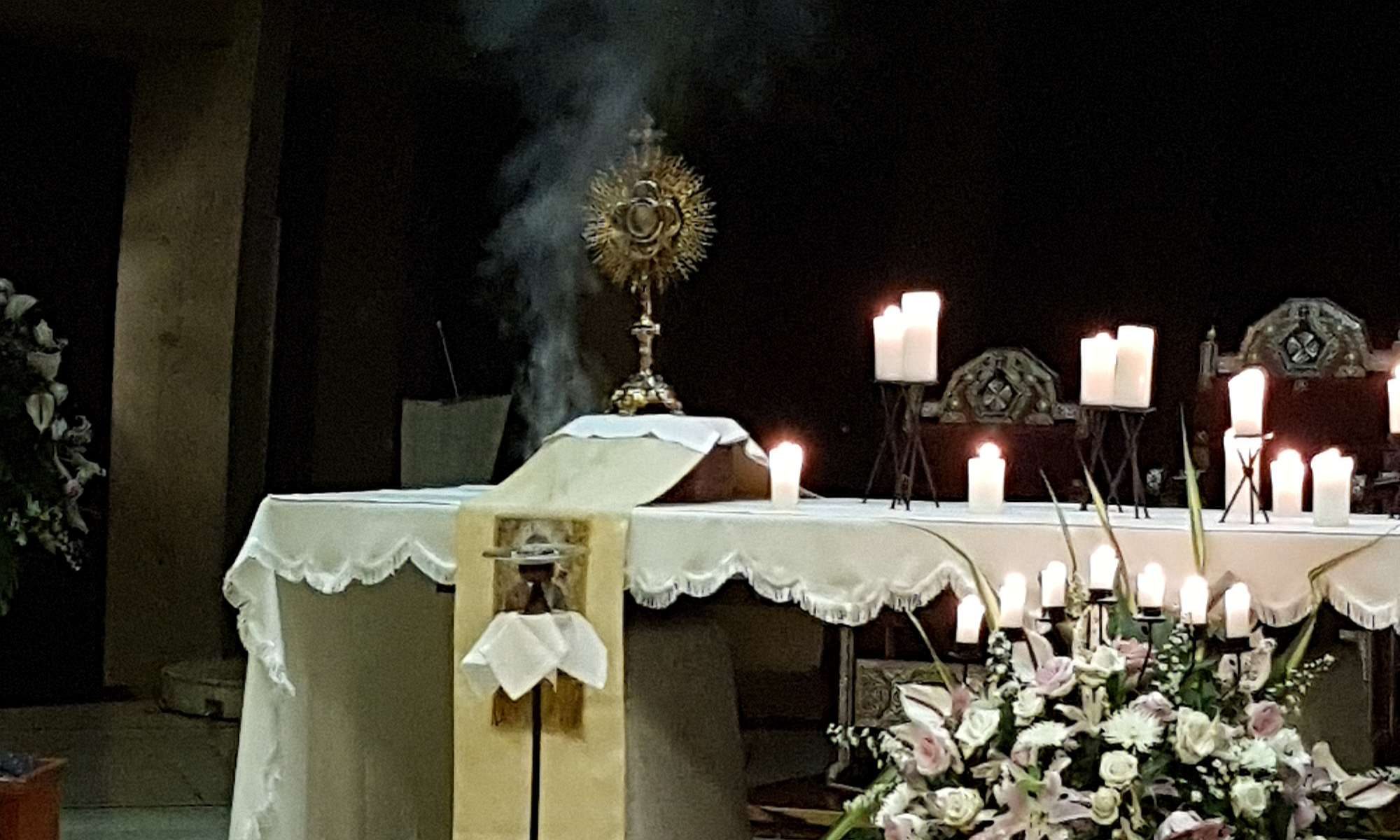A Meditation for the Monthly Meeting of the Bethlehem Curia of the Legion of Mary
 To mark the 2000th anniversary of the apostle St. Paul’s birth, our well-loved pope Benedict has decided to celebrate the “Year of St. Paul,” starting next June 28th, 2008. An extensive quotation from a catechesis of his, given in Octuber, 2006, is a fitting introduction to this great opportunity we all share:
To mark the 2000th anniversary of the apostle St. Paul’s birth, our well-loved pope Benedict has decided to celebrate the “Year of St. Paul,” starting next June 28th, 2008. An extensive quotation from a catechesis of his, given in Octuber, 2006, is a fitting introduction to this great opportunity we all share:
[Early in his life, Paul] went to Jerusalem to study the roots of Mosaic Law in the footsteps of the great Rabbi Gamaliele (cf. Acts 22: 3). He also learned a manual and common trade, tent making (cf. Acts 18: 3), which later permitted him to provide personally for his own support without being a weight on the Churches (cf. Acts 20: 34; I Cor 4: 12; II Cor 12: 13).
It was decisive for him to know the community of those who called themselves disciples of Jesus. Through them he came to know a new faith – a new “way”, as it was called – that places not so much the Law of God at the centre but rather the person of Jesus, Crucified and Risen, to whom was now linked the remission of sins. As a zealous Jew, he held this message unacceptable, even scandalous, and he therefore felt the duty to persecute the followers of Christ even outside of Jerusalem.
It was precisely on the road to Damascus at the beginning of the 30s A.D. that, according to his words, “Christ made me his own” (Phil 3: 12). While Luke recounts the fact with abundant detail – like how the light of the Risen One touched him and fundamentally changed his whole life -, in his Letters he goes directly to the essential and speaks not only of a vision (cf. I Cor 9: 1), but of an illumination (cf. II Cor 4: 6), and above all of a revelation and of a vocation in the encounter with the Risen One (cf. Gal 1: 15-16).
In fact, he will explicitly define himself as “apostle by vocation” (cf. Rom 1: 1; I Cor 1: 1) or “apostle by the will of God” (II Cor 1: 1; Eph 1: 1; Col 1: 1), as if to emphasize that his conversion was not the result of a development of thought or reflection, but the fruit of divine intervention, an unforeseeable, divine grace.
Henceforth, all that had constituted for him a value paradoxically became, according to his words, a loss and refuse (cf. Phil 3: 7-10). And from that moment all his energy was placed at the exclusive service of Jesus Christ and his Gospel. His existence would become that of an Apostle who wants to “become all things to all men” (I Cor 9: 22) without reserve.From here we draw a very important lesson: what counts is to place Jesus Christ at the centre of our lives, so that our identity is marked essentially by the encounter, by communion with Christ and with his Word. In his light every other value is recovered and purified from possible dross.
Another fundamental lesson offered by Paul is the universal breadth that characterizes his apostolate. Acutely feeling the problem of the Gentiles, of the pagans, to know God, who in Jesus Christ Crucified and Risen offers salvation to all without exception, he dedicates himself to make this Gospel – literally, “good news” – known, to announce the grace destined to reconcile men with God, self and others.
From the first moment he understood that this is a reality that did not concern only the Jews or a certain group of men, but one that had a universal value and concerned everyone, because God is the God of everyone.
There is not a single explicit mention of the Blessed Virgin in the great apostle’s writings, and this fact has led some, particularly on the Protestant side, to think that no serious basis can be given for a relationship between Mary and the teachings of St. Paul. On a second thought, however, one may realise that it is exactly the opposite: arguably, there is no major theme in the apostle’s letters than God’s grace acting in our lives, as the true answer to human hope and true source of love. On the other hand, “Full of Grace” is the proper name of Our Lady in Luke’s gospel’s recollection, so much so that the Archangel does not say the words: “Hail, Mary” but “Hail, Kecharitomene,” that is, “Hail, Full of Grace.”
One may say that Paul’s theology is Mary’s life. Between the Great Mother of God and the Great Apostole of the Gentiles there is not a bond of words but a more substantial bond made up of deeds, namely, God’s deeds. It was St. Theresa of Jesus who said that God’s words are deeds, and probably in the present case we are in front of a very beautiful fulfillment of that saying.
As we enter into this Year of Grace and reflect upon the life and mission of St. Paul, may the Blessed Virgin, witness to God’s power and mercy, accompany us and guide us with her prayers and example. Amen.
